
Published Oct 2024
Challenge areas for the Sector
Social enterprises are at the forefront of tackling some of our most pressing challenges. This section focuses on four thematic areas where social enterprises are driving real change: environmental care, people-centred services, access to decent work, and community-led innovation. Dive into the latest research and thinking that can help grow understanding and impact in each of these critical areas.
Environmental care
This section explores the critical role of social enterprises in addressing environmental challenges and promoting sustainability. We'll examine the various ways in which social enterprises are working to reduce their environmental footprint, develop eco-friendly products and services, and advocate for change. This will include considering areas such as renewable energy, waste reduction, conservation, and regenerative food systems. We'll also discuss the opportunities and challenges of building a more sustainable social enterprise sector in Australia.
Resources
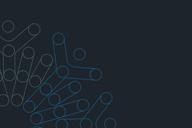
Indigenous Land and Sea Corporation (ILSC): Supporting Indigenous Stewardship
The ILSC supports Indigenous communities in reclaiming and managing land and sea Country. By providing funding and fostering partnerships, it helps restore ecosystems, creates economic opportunities, and strengthens environmental governance. Through projects that integrate Indigenous knowledge with modern conservation practices, the ILSC promotes leadership and sustainable development, ensuring the restoration of cultural and ecological heritage for Traditional Owners.
Indigenous Land and Sea Corporation (ILSC): Supporting Indigenous Stewardship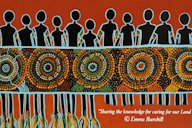
Our Knowledge, Our Way – Indigenous Knowledge Guidelines First Nations
Our Knowledge, Our Way is a set of Indigenous-led best practice guidelines that show how Aboriginal and Torres Strait Islander peoples strengthen and share their knowledge to care for land and sea Country. The resource highlights respectful ways of working with Indigenous knowledge and building partnerships that support cultural leadership, land management and collaborative decision-making across research and practice.
Our Knowledge, Our Way – Indigenous Knowledge Guidelines.png?w=192)
'Core Concepts of Doughnut Economics’, Kate Raworth
This video introduces Doughnut Economics, a framework by economist Kate Raworth that balances human needs with planetary health. Challenging traditional growth-focused economics, it emphasises well-being within ecological limits. The concept offers a compelling perspective on sustainable development and highlights the role of social enterprises in the impact economy, engaging stakeholders effectively.
'Core Concepts of Doughnut Economics’, Kate Raworth.png?w=192)
‘Earth for All: A Survival Guide for Humanity - Executive Summary’, Earth4All
Earth4All’s two-year research investigates pathways to achieve global wellbeing within planetary boundaries by 2100. It examines two scenarios: ‘Too Little Too Late,’ continuing current economic policies, and ‘Giant Leap,’ requiring bold decisions and investments. The report identifies five critical turnarounds—poverty, inequality, women’s empowerment, food systems, and energy transformation—and calls for active governments, wellbeing economies, and urgent action this decade. Using system dynamics models, it highlights affordable economic shifts and proposes citizens’ assemblies to overcome political barriers.
‘Earth for All: A Survival Guide for Humanity - Executive Summary’, Earth4All
'Food Relief Good Practice Guide', Centre for Social Impact
This guide, developed by the Centre for Social Impact (CSI) Flinders, provides food relief organisations with strategies to move beyond emergency provision by integrating dignity, choice, and community connections. It offers practical approaches to improving service delivery, emphasising people-centered practices, community engagement, and collaboration. By focusing on long-term solutions, the guide helps address the root causes of food insecurity and fosters sustainable change within communities.
'Food Relief Good Practice Guide', Centre for Social Impact
'Part Discount Grocer, Part Social Connection: Defining Elements of Social Supermarkets', Centre for Social Impact
This research paper by the Centre for Social Impact Flinders explores social supermarkets as an innovative model for addressing food insecurity. Combining affordable food access with social support, these supermarkets move beyond traditional food relief by integrating dignity, choice, and community connection. The paper highlights how social supermarkets offer a comprehensive approach, including financial, emotional, and skill-building services, fostering long-term independence and resilience for clients.
'Part Discount Grocer, Part Social Connection: Defining Elements of Social Supermarkets', Centre for Social Impact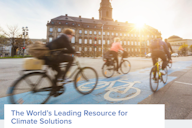
Project Drawdown: The World’s Leading Resource for Climate Solutions
Project Drawdown is a nonprofit organisation dedicated to identifying and scaling science-based solutions to combat climate change. Focused on equitable, safe, and effective approaches, the organisation conducts research, engages stakeholders, and promotes solutions to drive meaningful action. Through storytelling and collaboration, Project Drawdown shifts the narrative on climate change from despair to possibility, offering practical pathways for individuals and organisations to contribute to impactful climate action.
Project Drawdown: The World’s Leading Resource for Climate Solutions-21.png?w=192)
Global Footprint Network: Measuring Humanity’s Impact on the Planet
The Global Footprint Network is an international nonprofit organisation focused on measuring and tracking ecological footprints. By providing tools and data, it supports governments, businesses, and individuals in making informed decisions that promote sustainability and help live within Earth's ecological limits. The organisation works on ecological footprint accounting, policy support, and public education, offering resources to guide sustainable living and ecological resilience.
Global Footprint Network: Measuring Humanity’s Impact on the Planet.png?w=192)
Australian Conservation Foundation (ACF): Advocating for a Healthy Environment
The Australian Conservation Foundation (ACF) is a leading environmental organisation dedicated to protecting Australia’s ecosystems, addressing climate change, and promoting sustainable development. Through advocacy, community engagement, and research, ACF empowers individuals and communities to take action on critical environmental issues, from biodiversity and land conservation to climate change. ACF’s work fosters systemic change, driving the transition to a more sustainable future for Australia and the planet.
Australian Conservation Foundation (ACF): Advocating for a Healthy Environment-23.png?w=192)
Bush Heritage Australia: Protecting and Restoring Australia’s Ecosystems
Bush Heritage Australia is dedicated to conserving Australia’s unique biodiversity by managing ecologically significant land. Through collaboration with Traditional Owners, the organisation restores ecosystems and protects wildlife habitats, contributing to environmental resilience. Bush Heritage’s work focuses on land conservation, Indigenous knowledge integration, and ecological restoration, ensuring the preservation of Australia’s natural heritage for future generations.
Bush Heritage Australia: Protecting and Restoring Australia’s Ecosystems
Climate Council: Expert Advice on Climate Solutions
The Climate Council is an independent organisation offering science-based insights into climate change and solutions. It empowers Australians to take informed action on sustainability through research, public education, and community engagement. The organisation provides accessible reports on renewable energy, climate risks, and adaptation strategies, while also supporting citizens with campaigns and resources for climate advocacy, driving awareness and promoting a sustainable future.
Climate Council: Expert Advice on Climate Solutions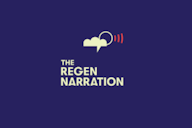
The RegenNarration Podcast: Stories of Ecological Regeneration
The RegenNarration Podcast showcases inspiring stories of ecological regeneration and community resilience, featuring leaders in conservation, sustainable farming, and Indigenous land management. Through interviews with activists, scientists, and community leaders, the podcast explores innovative approaches to sustainability and regenerative practices. It offers practical insights and resources, empowering individuals and communities to contribute to environmental regeneration and build a more resilient future.
The RegenNarration Podcast: Stories of Ecological Regeneration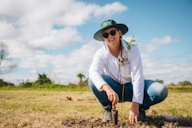
Greening Australia: Large-Scale Environmental Restoration
Greening Australia addresses key environmental challenges through reforestation, habitat restoration, and climate resilience projects. By combining scientific research, community engagement, and innovative solutions, it works to restore degraded ecosystems. Its efforts include reforestation, carbon sequestration, waterway protection, and collaboration with local communities and Traditional Owners, strengthening environmental resilience and restoring Australia’s natural habitats on a national scale.
Greening Australia: Large-Scale Environmental Restoration
Permaculture Australia: Sustainable Living Through Design
Permaculture Australia promotes sustainable living and growing practices through the principles of permaculture, tailored to Australia’s unique climate and ecosystems. The organisation provides education, training, and certification in permaculture design, supports local projects focused on food security and regenerative agriculture, and advocates for ecological and social resilience. By fostering self-sufficient, sustainable communities, Permaculture Australia helps communities work in harmony with the environment.
Permaculture Australia: Sustainable Living Through Design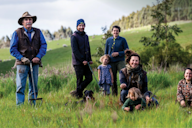
Landcare Australia: Community-Led Conservation
Landcare Australia empowers local communities to take action on environmental issues through conservation and sustainable agriculture. By supporting land restoration, revegetation, and sustainable farming, Landcare fosters community engagement and provides funding, training, and resources. The organisation also focuses on biodiversity conservation through collaborative projects that protect native species and ecosystems, ensuring long-term, sustainable environmental solutions.
Landcare Australia: Community-Led Conservation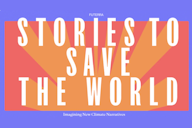
'Stories to save the world', Futerra
This resource explores the power of storytelling in addressing climate change - its underlying ideas can be applied to other areas of impact. It argues that while the science and technology for combating climate change exist, what's missing is the right story to motivate action.
'Stories to save the world', Futerra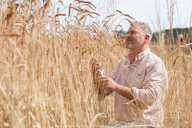
Sustainable Table Regenerative Agriculture Food & Farming Map
Sustainable Table focuses on regenerating food and farming in Australia. This site shares a wealth of resources including Australia’s first Regenerative Food and Farming Map and ‘Regen 101’.
Sustainable Table Regenerative Agriculture Food & Farming Map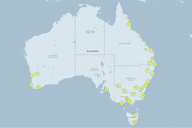
Australian Regenerative Food & Farming Map
A growing network of people and businesses is driving regenerative food and farming across Australia—this map brings them into view.
Australian Regenerative Food & Farming Map
Regen 101
Learn more about what regenerative agriculture is and how we can grow food in a way that gives back to people and the planet.
Regen 101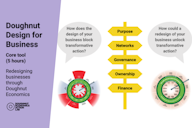
Doughnut Economics Action Lab (DEAL)
This is a website and workshop tool for companies to engage with Doughnut Economics. It aims to help transform the deep design of a business e.g. ownership and governance, to ensure it can use the strategies, practices and business models needed to help humanity into the Doughnut.
Doughnut Economics Action Lab (DEAL)Want to browse more resources?
See all resourcesPeople-centred services
Social enterprises have the potential to transform the way we deliver essential services, putting people and communities at the heart of their approach. In this section, we'll explore how social enterprises are reimagining sectors such as healthcare, education, and social services to better meet the needs of diverse populations. We'll examine the principles and practices of people-centred service design, highlighting how social enterprises can co-create solutions with the communities they serve. We'll also explore the challenges of scaling and sustaining people-centred approaches within the current funding and policy environment.
Resources
.png?w=192)
'The Field Guide to Human-Centred Design', IDEO
IDEO is a global design agency known for its human-centred approach. This Field Guide to Human-Centred Design represents how IDEO thinks about design for social impact. It includes 57 clear-to-use design methods for new and experienced practitioners, plus case studies.
'The Field Guide to Human-Centred Design', IDEO.png?w=192)
'Using the Business Model Canvas for Social Enterprise Design', Ingrid Burkett
This booklet goes beyond the Business Model Canvas as a general tool. It outlines how Ingrid Burkett, an Australian social entrepreneur, applies the Canvas to the specific needs of social enterprise. The booklet walks you through how to use the Canvas step-by-step.
'Using the Business Model Canvas for Social Enterprise Design', Ingrid Burkett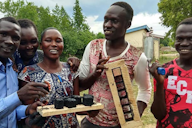
Co-Creating a More Equitable World: The Transformative Benefits of Participatory Design, MIT D-Lab
This MIT D-Lab article introduces participatory design as a powerful approach to fostering equity and creating sustainable solutions by engaging end-users as co-creators. It explores the benefits of building skills, trust, and ownership while producing durable, context-specific outcomes. By tailoring methods to different challenges, participatory design promotes inclusivity and addresses systemic inequities.
Co-Creating a More Equitable World: The Transformative Benefits of Participatory Design, MIT D-Lab
A Guide to Selecting Participatory Research Methods Based on Project and Partnership Goals, Journal of Participatory Research Methods
This guide explores participatory research methods designed to align with collaborative project and partnership goals. By involving communities throughout the research process, it promotes equity, trust, and relevance. With actionable frameworks for co-production, it supports researchers and organisations in integrating community knowledge, enhancing outcomes, and fostering long-term collaboration. The guide categorises methods into five domains—engagement, exploration, visual and narrative, mobilisation, and evaluation—while addressing both the strengths and challenges of participatory approaches.
A Guide to Selecting Participatory Research Methods Based on Project and Partnership Goals, Journal of Participatory Research Methods-15.png?w=192)
'Cultural Safety in Australia: Discussion Paper', Lowitja Institute First Nations
Cultural safety is pivotal for achieving equity and inclusion in health and human services. This paper focuses on embedding cultural safety into systems for Aboriginal and Torres Strait Islander peoples, addressing systemic racism and power imbalances. While primarily health-focused, its insights are applicable across sectors like social enterprise, community development, and governance.
'Cultural Safety in Australia: Discussion Paper', Lowitja Institute-24.png?w=192)
Service Design Tools: A Resource for Co-Creation and Innovation
Service Design Tools is an open-access platform offering methods and templates for designing user-centered services. With tools spanning research, ideation, and implementation, it supports collaboration and co-creation across diverse contexts like healthcare, education, and social innovation. Suitable for both beginners and experienced designers, the platform provides resources to facilitate inclusive and impactful service development.
Service Design Tools: A Resource for Co-Creation and Innovation.png?w=192)
Health Justice Australia
Health Justice Australia integrates legal services into healthcare to address social factors affecting health. Through partnerships, resources, and training, it supports healthcare and legal professionals in delivering holistic care, particularly for vulnerable communities.
Health Justice Australia.png?w=192)
The Australian Centre for Social Innovation (TACSI)
TACSI is a social innovation lab that supports organisations and communities in designing impactful solutions to complex social challenges. Using human-centred design and co-design methods, it provides toolkits, case studies, and frameworks to transform services in areas like ageing, mental health, housing, and disability.
The Australian Centre for Social Innovation (TACSI).png?w=192)
First Nations Co-Design Platform (AIATSIS) First Nations
The AIATSIS First Nations Co-Design Platform supports culturally safe, community-led service design with Aboriginal and Torres Strait Islander communities. It promotes Indigenous knowledge, participatory decision-making, and co-ownership to ensure services align with local needs and aspirations.
First Nations Co-Design Platform (AIATSIS).png?w=192)
National Disability Insurance Scheme (NDIS) Co-Design Hub
The NDIS Co-Design Hub supports inclusive disability service design by involving people with disabilities and their families. It provides resources, case studies, and best practices to foster collaboration between participants, service providers, and policymakers.
National Disability Insurance Scheme (NDIS) Co-Design Hub.png?w=192)
'Inclusive Service Standards', Centre for Cultural Diversity in Ageing
The Inclusive Service Standards provide a framework for culturally safe and inclusive service delivery, particularly in aged care. They offer training, self-assessment tools, and case studies to help organisations embed inclusivity and improve service practices.
'Inclusive Service Standards', Centre for Cultural Diversity in AgeingWant to browse more resources?
See all resourcesAccess to decent work
Creating access to decent work is a key priority for many social enterprises, particularly those working with disadvantaged or marginalised communities. This section examines the various strategies social enterprises are using to create meaningful employment opportunities, from job training and pathway programs to inclusive hiring practices and fair wage policies. We'll explore the challenges of operating in a rapidly changing labour market and how social enterprises can innovate and advocate for broader systemic changes to support access to decent work for all.
Resources
-9.png?w=192)
'The Community Well', Benefolk Foundation
The Community Well, also known as the Social Sector Wellbeing and Resilience Hub, is an online resource designed to support charities, not-for-profits, and social enterprises. Created to address stress and burnout in the social sector, it offers curated tools, practical strategies, and advocacy for systemic change, fostering sustainable mental health and resilience practices.
'The Community Well', Benefolk Foundation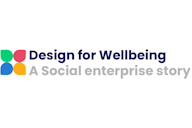
Design for Wellbeing: A Social Enterprise Story
This resource showcases findings from Australian Research Council studies on Work Integration Social Enterprises (WISE). It emphasises the role of social enterprises in enhancing individual and community wellbeing, particularly in disadvantaged and regional areas. The platform offers tools, insights, and strategies for social enterprises, policymakers, and ecosystem supporters to design workplaces and practices that integrate wellbeing principles, address systemic disadvantage, and foster resilience. Key focus areas include regional community wellbeing, youth health equity, and leveraging organisational design to influence positive social outcomes.
Design for Wellbeing: A Social Enterprise Story.png?w=192)
'Payment by Outcomes: Measuring the Effectiveness of Jobs-Focused Social Enterprises', Centre for Social Impact
This report by CSI Swinburne evaluates the Australian Government’s Payment by Outcomes (PBO) trial, which funds jobs-focused social enterprises based on employment outcomes. It assesses the impact on individuals facing work barriers, including those with disabilities, and explores the trial’s systemic and policy implications for employment services.
'Payment by Outcomes: Measuring the Effectiveness of Jobs-Focused Social Enterprises', Centre for Social Impact-1.png?w=192)
'A Guide to Outcomes Contracting and Social Impact Bonds', SVA
This guide by Social Ventures Australia (SVA) shares insights from over a decade of outcomes-based contracting and social impact bonds (SIBs) in Australia. It offers practical advice, key lessons, and policy implications for organisations exploring these funding models.
'A Guide to Outcomes Contracting and Social Impact Bonds', SVA-1.png?w=192)
'Is Your Program Suitable for the Outcomes Fund?', SVA
This guide by Social Ventures Australia (SVA) helps organisations assess program suitability for the Australian Government’s $100 million Outcomes Fund. It outlines key funding criteria, evaluation methods, and practical guidance for securing outcomes-based contracts and social impact bonds (SIBs).
'Is Your Program Suitable for the Outcomes Fund?', SVA-1.png?w=192)
'Connecting Pathways to Employment with the Work Integration Social Enterprise (WISE) Model', Centre for Social Impact
This report by CSI Swinburne introduces the WISE-Ability model, a framework for transforming Australian Disability Enterprises (ADEs) into more inclusive organisations. It supports employment pathways for people with disabilities, aligning with NDIS funding and fostering open employment opportunities.
'Connecting Pathways to Employment with the Work Integration Social Enterprise (WISE) Model', Centre for Social Impact.png?w=192)
What Will It Take? Creating Better, More Sustainable Jobs for Young People
This report by Social Ventures Australia (SVA) and AEN, with analysis by PwC Consulting, examines barriers to youth employment in Australia. It explores employer challenges, systemic issues, and solutions to improve career pathways for young people, particularly those outside university pathways.
What Will It Take? Creating Better, More Sustainable Jobs for Young People-1.png?w=192)
'Interview with Sally McGeoch discussing inclusive employment', Room for All – Inclusion in Hospitality Podcast
This podcast episode features Sally McGeoch from the Westpac Foundation, discussing her journey, social enterprise challenges, and opportunities. The conversation covers funding, collaboration, and impactful initiatives supporting meaningful employment for marginalised groups.
'Interview with Sally McGeoch discussing inclusive employment', Room for All – Inclusion in Hospitality Podcast.png?w=192)
Voices on Work: Young People with Disability in Greater Melbourne
This report by SVA and CYDA explores the employment experiences of young people with disability in Greater Melbourne. It highlights barriers, workplace challenges, and opportunities for creating inclusive and meaningful employment pathways.
Voices on Work: Young People with Disability in Greater Melbourne.png?w=192)
SVA's 'Employer Innovation Lab'
The Employer Innovation Lab by Social Ventures Australia helps employers improve recruitment and retention by addressing barriers young people face in the workforce. Through a structured, collaborative program, businesses develop and scale inclusive employment strategies to create meaningful career pathways.
SVA's 'Employer Innovation Lab'-12.png?w=192)
‘What Is Psychological Safety?', McKinsey
Psychological safety is crucial for innovation, teamwork, and organisational success. This article highlights its role in fostering inclusive and high-performing cultures. It outlines leadership strategies to build trust, such as open dialogue, curiosity, and equitable participation. Learn how consultative, supportive, and challenging leadership styles enhance team resilience, creativity, and productivity, particularly in remote and hybrid work environments.
‘What Is Psychological Safety?', McKinsey.png?w=192)
‘Diversity, Equity, & Inclusion in the Workplace: A Strategic and Actionable Guide’, Diversity Australia
This Diversity Australia resource provides practical guidance on integrating diversity, equity, and inclusion (DEI) into workplaces. It explores key concepts, outlines benefits like improved culture and business outcomes, and offers strategies for fostering inclusivity. Highlighting leadership's role and the need for ongoing training, it frames DEI as both a moral and strategic imperative, emphasising that building an inclusive workplace requires sustained commitment.
‘Diversity, Equity, & Inclusion in the Workplace: A Strategic and Actionable Guide’, Diversity Australia.png?w=192)
‘Relationships’, The Australian Indigenous Governance Institute (AIGI) First Nations
This resource from the Australian Indigenous Governance Institute (AIGI) examines the significance of relationships in First Nations governance. It covers cultural, community, and environmental connections, balancing roles, building trust, and fostering effective partnerships. The guide also explores allyship, network expansion, and practical strategies for creating balanced, respectful collaborations within Indigenous communities and beyond.
‘Relationships’, The Australian Indigenous Governance Institute (AIGI).png?w=192)
‘Managing the Managers: Nine Tips to Help Social Enterprises Build Outstanding Management Teams’, Next Billion
This NextBillion article provides nine essential strategies for building strong management teams in social enterprises. It highlights the importance of fostering a high-performing culture, implementing supportive systems, and prioritising continuous learning. Key approaches include effective talent assessment, incremental onboarding, meeting management, and coaching skill development. The article emphasises how strong management is vital for scaling operations and achieving meaningful impact.
‘Managing the Managers: Nine Tips to Help Social Enterprises Build Outstanding Management Teams’, Next Billion.png?w=192)
ILO Decent Work Agenda
The ILO Decent Work Agenda promotes fair, secure, and productive employment worldwide. It provides policy guidance, resources, and best practices to support job creation, labour rights, and social protection.
ILO Decent Work Agenda.png?w=192)
Platform Cooperatives Toolkit
The Platform Cooperatives Toolkit provides practical resources for building fair, worker-owned cooperatives in the digital economy. It includes step-by-step guides, case studies, and tools to promote equitable ownership and sustainable employment.
Platform Cooperatives Toolkit-1.png?w=192)
Amplify Alliance
The Amplify Alliance supports not-for-profit organisations delivering employment and community services across Australia. It advocates for fair labour policies, offers training resources, and fosters collaboration to enhance workforce development.
Amplify Alliance-1.png?w=192)
National Employment Services Association (NESA)
The National Employment Services Association (NESA) is Australia's peak body for employment services, advocating for systemic improvements, workforce development, and inclusive hiring. It supports employment practitioners and promotes job access for disadvantaged groups.
National Employment Services Association (NESA)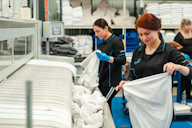
Costs and benefits of tailored job support programs, Paul Ramsay Foundation
This research demonstrates the costs and benefits of tailored employment support programs for people facing complex barriers to work, providing evidence and tools to help funders and organisations make effective investments in job-seeker programs. This report from 2024 aims to collate and strengthen existing evidence of ’what works’ in which contexts, while establishing an evidence base for the type and level of resourcing needed to achieve more enduring outcomes for those facing complex barriers to work.
Costs and benefits of tailored job support programs, Paul Ramsay Foundation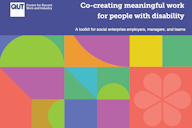
Co-creating meaningful work for people with disability
This toolkit developed by Queensland University of Technology is designed for employers, managers and teams who want to create workplaces where people with disability can thrive, contribute their skills, and build meaningful careers.
Co-creating meaningful work for people with disabilityWant to browse more resources?
See all resourcesCommunity-led innovation
Social enterprises have the unique ability to harness the knowledge, skills, and creativity of local communities to drive innovation and address complex problems. In this section, we'll explore the concept of community-led innovation and its potential to generate more effective, sustainable, and culturally appropriate solutions. We'll highlight approaches to support community-led innovation, from participatory research and co-design methods to placed-based investment and community governance.
Resources
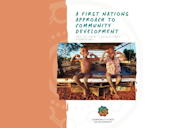
Our Community Development Framework – a First Nations Approach First Nations
This resource is a practical guide from Community First Development that explains their First Nations approach to community development. It outlines a strengths-based framework shaped by culture, relationships and self-determination. The guide shows how communities can lead decisions, design local solutions and measure progress in ways that respect First Nations knowledge and value
Our Community Development Framework – a First Nations Approach.png?w=192)
'Space for Community: Strengthening our Social Infrastructure', Power to Change (2022)
This report by the British Academy and Power to Change examines how social infrastructure strengthens community resilience. It highlights key spaces, their role in fostering inclusivity, and policy recommendations for maintaining and enhancing social infrastructure.
'Space for Community: Strengthening our Social Infrastructure', Power to Change (2022)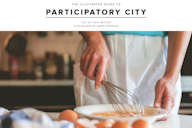
'The Illustrated Guide to Participatory City', Britton and Anderson
This guide introduces the Participatory City model, designed to create vibrant, inclusive neighbourhoods through active resident engagement in practical projects. It offers principles, methods, and insights for addressing social challenges and building community resilience, serving as a valuable resource for policymakers, community leaders, and organisations.
'The Illustrated Guide to Participatory City', Britton and Anderson-2.png?w=192)
'Participatory Budgeting: Meaning, Benefits & A Step-by-Step Guide', Delib
This article introduces participatory budgeting, a democratic process empowering citizens to influence public fund allocation. It covers its origins in Porto Alegre, Brazil, outlines key stages, and highlights benefits like transparency, trust, and community empowerment, making it an ideal resource for those exploring the concept.
'Participatory Budgeting: Meaning, Benefits & A Step-by-Step Guide', Delib.png?w=192)
'How to revive a neighborhood: with imagination, beauty and art', Theaster Gates
Theaster Gates, a potter by training and a social activist by calling, tells his story of transforming abandoned buildings to create community hubs that connect and inspire those who live there. A famously inspiring talk, it shows how problems can be reframed as opportunities, how to start with what you’ve got, how to make something out of nothing and how culture can be a catalyst for social transformation.
'How to revive a neighborhood: with imagination, beauty and art', Theaster Gates.png?w=192)
'The Collective Impact Toolkit', Tamarack Institute
The Collective Impact Toolkit by the Tamarack Institute provides practical resources to help communities and organisations tackle complex social challenges through collaboration. It offers frameworks, tools, and case studies to support systemic change.
'The Collective Impact Toolkit', Tamarack Institute.png?w=192)
'How Communities Awaken', Vivian Hutchinson
“How Communities Awaken” by Vivian Hutchinson explores active citizenship, community development, and Māori cultural wisdom. Based on the Taranaki Masterclass and Community Conversations, these essays provide insights on fostering connection, creativity, and social change.
'How Communities Awaken', Vivian Hutchinson.png?w=192)
'Investing in your community: A guide to managing community funds', Highlands and Islands Enterprise
This guide, supported by Highlands and Islands Enterprise, helps communities manage funds from renewable energy projects and other sources. It covers fund management models, practical steps for distribution, case studies, governance, and long-term sustainability. By providing best practices and real-world examples, it equips communities with the tools to reinvest in local initiatives, ensuring transparency, resilience, and long-term benefits.
'Investing in your community: A guide to managing community funds', Highlands and Islands Enterprise.png?w=192)
‘An Introduction to Community Wealth Building', Ethical Fields
This Ethical Fields guide explores community wealth building as a transformative approach to creating equitable, resilient local economies. It highlights principles like local ownership, democratic participation, and wealth redistribution, alongside practical strategies for stakeholders to implement this model in Australia.
‘An Introduction to Community Wealth Building', Ethical Fields-2.png?w=192)
‘Self-determination section for the ‘Indigenous Governance Toolkit’, The Australian Indigenous Governance Institute (AIGI) First Nations
Self-determination is vital to the governance and aspirations of Aboriginal and Torres Strait Islander peoples, enabling them to lead decision-making, exercise sovereignty, and build community-driven governance systems. This toolkit section outlines principles, pathways, and practical steps toward self-determination, including nation building, treaty processes, and sustainable development.
‘Self-determination section for the ‘Indigenous Governance Toolkit’, The Australian Indigenous Governance Institute (AIGI)-1.png?w=192)
'Civic Imagination Toolkit', USC
The Civic Imagination Toolkit, developed by USC, helps communities collaboratively envision equitable futures through storytelling and creative activities. It fosters dialogue, inclusion, and trust while empowering groups to address systemic challenges through imagination and innovation.
'Civic Imagination Toolkit', USC.png?w=192)
The Australian Centre for Social Innovation (TACSI)
TACSI is a social innovation lab that supports organisations and communities in designing impactful solutions to complex social challenges. Using human-centred design and co-design methods, it provides toolkits, case studies, and frameworks to transform services in areas like ageing, mental health, housing, and disability.
The Australian Centre for Social Innovation (TACSI).png?w=192)
Indigenous Knowledge Centres (IKCs) First Nations
Indigenous Knowledge Centres (IKCs), operated by the State Library of Queensland, empower Indigenous communities to preserve culture, share knowledge, and integrate modern technology. They support local leadership, digital access, and cultural innovation.
Indigenous Knowledge Centres (IKCs).png?w=192)
Centre for Appropriate Technology (CfAT) First Nations
The Centre for Appropriate Technology (CfAT) delivers innovative, community-driven solutions for remote Aboriginal and Torres Strait Islander communities. By integrating Indigenous knowledge with modern technology, CfAT develops essential infrastructure, provides training, and supports sustainable development to enhance self-determination.
Centre for Appropriate Technology (CfAT)Want to browse more resources?
See all resourcesComing soon
Understorey points to a range of quality resources that already exist across the sector: practical guides, tools, reports, case studies, and proven frameworks. We’re bringing them together in one place to make it easier for everyone to learn and exchange about social enterprise.
Do you know of a great resource we should include?

We’d love to hear from you!
Reach out to one of our team members, and share input and ideas about how we can evolve Understorey.
Get in touch